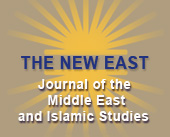The Contribution of Early Islamic Rulers to Adjudication and
Legislation: the Case of the Mazalim Tribunals
Nimrod Hurvitz
During the early Islamic empires there was a significant gap between processes of legislation and perceptions of law-making. Despite the fact that the early Islamic rulers determined many of the laws and decided upon practice in the fields of administrative, criminal and public law (siyasa shar`iyya), their contribution was not mentioned in legal literature and Muslim scholars tended to ignore their contribution to the burgeoning public law. This essay examines the marginalization of the rulers and public law from two angles. It first surveys the manner in which contemporary historians of Islamic law explained this phenomenon. Most modern historians present the marginalization of rulers and public law as an initiative of medieval scholars of law. They depict the rulers as caving in to the scholars or simply relinquishing authority because they respected them. This article presents the marginalization of rulers and public law in a different light. The interpretation it proposes is that the rulers were not pushed aside by the jurists, but rather that the rulers had a clear interest in public law remaining outside the legal discourse. The rulers realized that as long as public law was not part of the legal discourse it would not be subject to it, and as a result the rulers be free of constraints, and not threatened by clashes with the jurists or sacred law.
The second angle examines the marginalization of public law through the case study of the mazalim tribunals. This institution, which enabled ordinary subjects to make complaints against members of the ruling elite who behaved unjustly towards them, was an important means of achieving justice in early Islamic societies. The mazalim tribunals also made an important contribution to the attainment of political and economic stability, and in so doing contributed to the security, sense of social justice and economy of these societies. Following a description of the mazalim's contribution to society, the article examines the manner in which the principles of the mazalim were articulated in Mawardi's composition, al-Ahkam al-Sultaniyya, which was written in the eleventh century. The conclusion of this analysis is that the al-Ahkam illustrates just how the legal discourse ignored the mazalim, since Mawardi had to invent a new legal discourse in order to address this institution.

